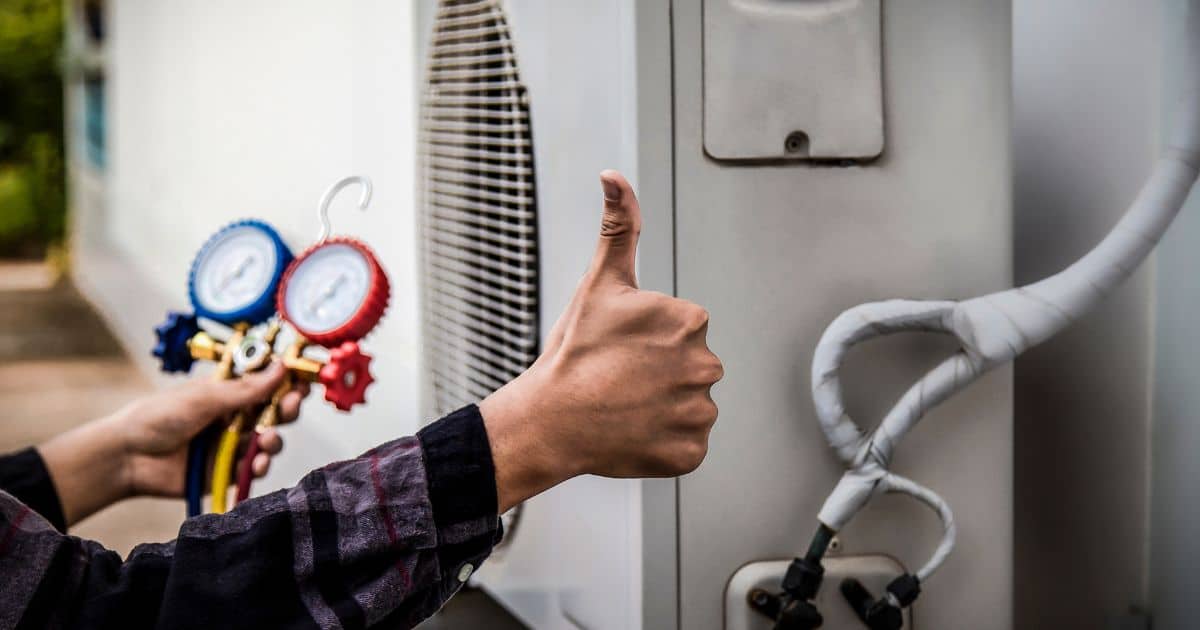An efficient HVAC system is key to maintaining a comfortable, healthy, and energy-efficient environment in homes and buildings, and Hudson Heating, Plumbing & AC can help ensure your system is running at its best. However, multiple factors can hinder the performance of these systems, leading to increased energy consumption, reduced comfort, and higher operating costs.
Understanding these factors is essential for homeowners to ensure their HVAC systems operate at optimal efficiency. Awareness of these issues can pave the way for corrective measures, ensuring your HVAC system functions year-round.

Discover how ignoring simple maintenance can turn your HVAC system into an energy guzzler. If you’ve noticed that there’s something wrong with your HVAC system, it may be time to contact a company that offers heating and air conditioning services in Scottsdale.
1. Insufficient maintenance
Neglecting regular maintenance activities such as cleaning or replacing air filters, checking for leaks, or ensuring that the system components are in good working order can significantly impair an HVAC system’s efficiency.
If maintenance is neglected, the system will have to work harder to circulate the air in your home, resulting in higher energy and utility bills. Additionally, the lifespan of the HVAC unit can be drastically reduced, resulting in costly repairs or even the need for replacement much sooner than anticipated.
Regular maintenance ensures that your HVAC system operates at peak efficiency and helps maintain good air quality in your home.
2. Improper system size
Installing an HVAC system that is either too large or too small for the space it is intended to serve can seriously impair its efficiency. A too large unit will cycle on and off more frequently, which can cause excessive wear and tear on system components, reducing the system’s overall lifespan.
In contrast, a small unit will require constant operation to maintain desired temperatures, which can lead to high energy usage and higher utility costs. Both scenarios prevent the system from operating at its most efficient level, contributing to unnecessary energy waste and elevated operating costs.
Proper sizing of the HVAC system is crucial for optimal performance and durability. You should consult a professional HVAC specialist from Kitchener-Waterloo HVAC services to determine the right size for your particular space.
3. Duct leakage
Leaky ductwork is another significant factor that can lead to inefficiencies in an HVAC system. When ducts are improperly sealed or have developed leaks over time, conditioned air can escape before reaching its intended destination.
Duct leakage can also create uneven temperatures throughout a home or building, resulting in too-hot or too-cold areas. This problem may lead homeowners to adjust the thermostat, further increasing energy usage.
To ensure an HVAC system operates efficiently, ductwork should be inspected regularly for leaks and professionally sealed if any are found. This not only improves the system’s efficiency but also enhances overall comfort levels.
4. Thermostat issues
A malfunctioning or poorly positioned thermostat can significantly impair the efficiency of an HVAC system. When thermostats are not functioning correctly, they may misread indoor temperatures, causing the HVAC system to run longer than necessary or cycle too frequently.
Furthermore, thermostats placed in direct sunlight or near heat sources can also falsely signal the HVAC system to activate, even when the rest of the building is at the desired temperature. It’s crucial to ensure that your thermostat is accurately calibrated and strategically located away from direct heat sources to maintain optimal HVAC efficiency.
5. Poor insulation
Poor insulation and inadequate air sealing are critical factors compromising an HVAC system’s efficiency. Buildings with insufficient insulation or gaps in air sealing allow heat to escape during the winter and enter during the summer, forcing HVAC systems to work overtime to keep comfortable indoor temperatures.
This results in higher energy usage, higher utility bills, and reduced system longevity. Ensuring that a building is properly insulated and sealed is essential to maximizing HVAC efficiency, enhancing indoor comfort, and minimizing energy waste.
Investing in professional air sealing and high-quality insulation can achieve significant energy savings and provide a sustainable and environmentally friendly environment.
